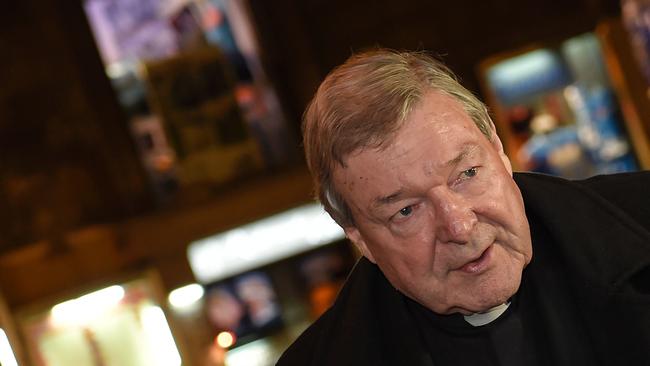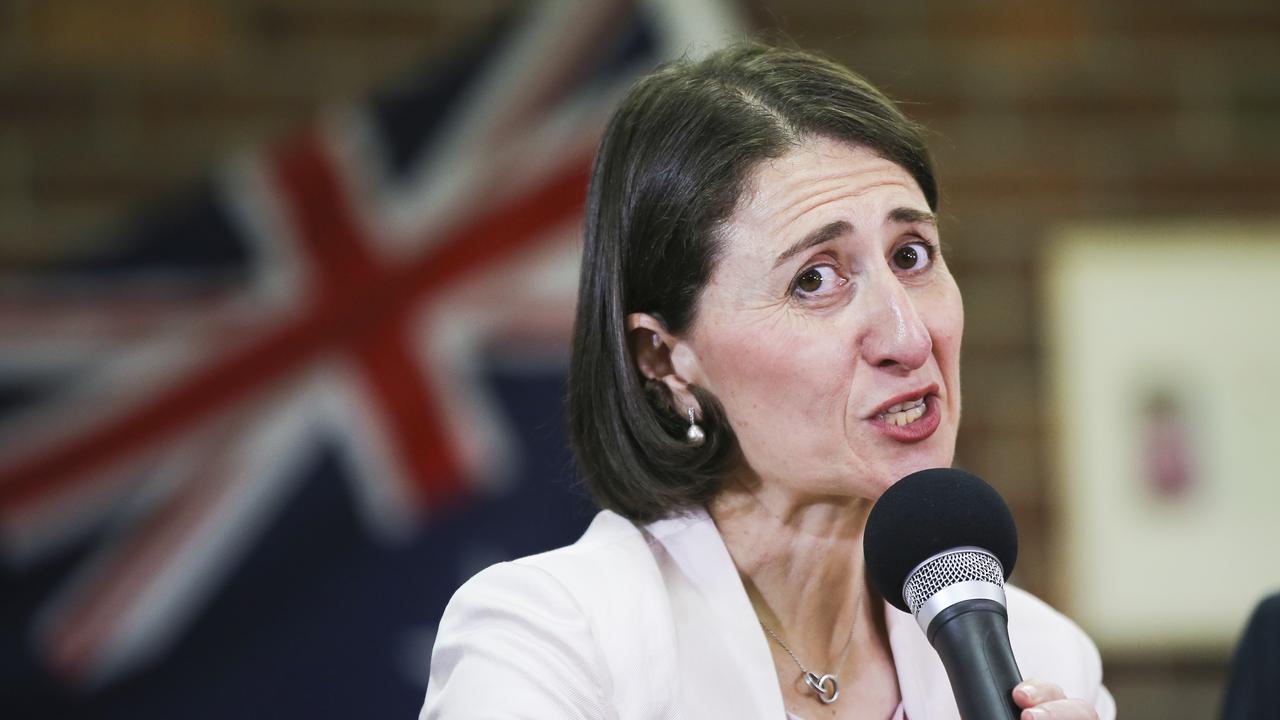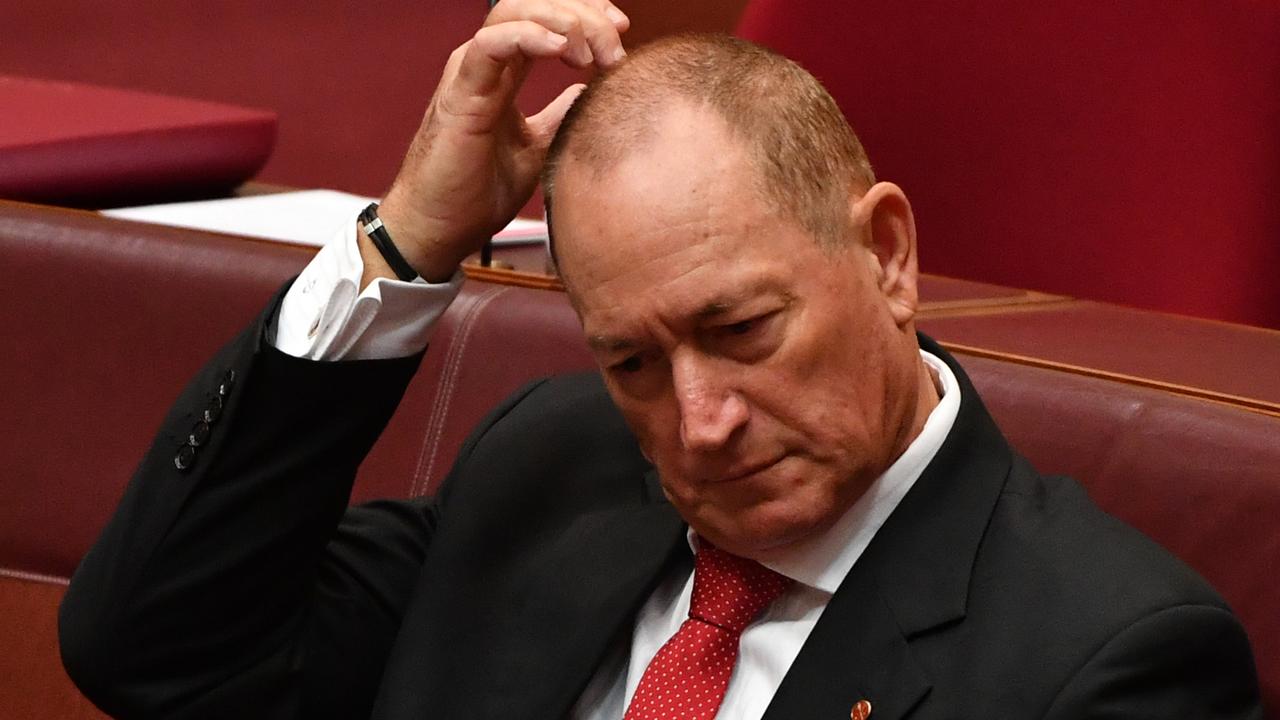
Cardinal George Pell has now been excused from further attendance at the Royal Commission into Institutionalised Responses to Child Sexual Abuse after giving evidence for the last four days.
The question of findings is a matter for the Royal Commission who will report publicly on its inquiries into Case Study 28 and Case Study 35 — both dealing with clerical child sex offending, the former relating to the Diocese of Ballarat, the latter the Catholic Archdiocese of Melbourne.
I think Australians have heard enough to make their own judgments about Pell’s conduct.
However, in the helter skelter business of media reporting where a story might get only a 30 second grab on a television news service, it is easy to lose focus. I fully understand the most senior cleric in Australia being grilled about what he knew and when about clerical child sexual abuse is bound to draw the spotlight. However, this approach does not tell the real story and tends to magnify one experience over the other.
I’ve either been present in a courtroom or watched on the web virtually every minute of evidence offered to the Royal Commission examining the situation in the Ballarat Diocese. It is worthwhile examining the conduct of other priests and religious within the Ballarat Diocese.
It was said Pell’s testimony on Tuesday threw his old bishop, Ronald Austin Mulkearns, under a bus. In my opinion, Mulkearns should have been thrown under a bus 50 years ago.
As the Bishop of Ballarat between 1971 and 1997, he was a virtual chief executive officer of the diocese, responsible for the financial health of the Church within the diocese and the placement of priests in parishes throughout the diocese, including those priests who had abused and raped children. He may have had a Committee of Consultors that included Pell on occasions to call upon for counsel but Mulkearns’ word was final.
There is no doubt Mulkearns knew of the offending of clerical paedophiles including Monsignor John Day, Father Gerald Ridsdale, Paul David Ryan and Father Bryan Coffey who was spectacularly arrested by police while celebrating Mass in 1997.
Mulkearns destroyed evidence including psychological reports that confirmed Ridsdale’s paedophilia as far back as the 1960s and in 1972 he colluded with senior Victoria Police in a conspiracy that would see Monsignor Day avoid criminal charges.
Full of hollow piety, Mulkearns would greet the faithful and agnostic alike by extending his hand and demanding they kiss his episcopal ring. It was his way of saying he was superior to the people he was charged to serve.
Mulkearns has given evidence to the Royal Commission and is due to do so again in abbreviated sessions specifically arranged due to his ill health. Mulkearns has cancer and is likely to be dead before Christmas.
Mulkearns’ secretary between 1979 and 1985 was Bishop then Father Vincent Finnigan. Finnigan was a member of the Committee of Consultors through that period and to December 1997. Finnigan would go on to become auxiliary bishop in Brisbane. He retired on January 1, 2016.
On 12 March 1994, almost a year after Ridsdale’s first conviction, Finnigan wrote to Ridsdale urging him to contact the diocese’s insurer, Catholic Church Insurances. The letter in part reads:
“Mr Jim O’Connor, a man in his 60s, was a chartered loss adjuster, a Roman Catholic, is now a sort of scout for Catholic Church Insurances and their lawyers, specialising in the area of gathering formal and informal information about those who issue writs claiming damages. Some of these fellows now see the opportunity to obtain some easy cash.”
“Some of these fellows” Finnigan refers to are Ridsdale’s victims. Finnigan was telling the convicted paedophile that Ridsdale’s victims were motivated by a desire for ‘easy’ money.
When this was put to Finnigan in the Royal Commission on 11 December last year, he acknowledged pursuing damages after being raped by a priest or religious figure was no path to quick and easy money. Indeed he said it was “drastically difficult”.
I interviewed a survivor who received just $4,000 after being sexually assaulted by Day when he was 11. Another fellow I interviewed was raped 30 times by Day between the ages of 11 and 12. He ultimately received $45,000 under the Towards Healing compensation scheme. That’s $1500 a rape. It is not in any sense, easy money.
Finnigan’s letter to Ridsdale reinforces the culture in place in the Ballarat Diocese under Mulkearns. The Church’s reputation and fiscal condition were the primary considerations. By this time, victims had become an inconvenience, a line item on a profit and loss statement.
When we look at the Ballarat Diocese we need also look at the Christian Brothers. In the arcane business of the Catholic Church hierarchy, an order such as the Christian Brothers did not answer to Mulkearns. They had their own management structures, known as provincial councils. The Royal Commission has received information of substantiated claims of child sexual abuse committed by 281 Christian Brothers between 1980 and 2015 across Australia.
Brother Brian Brandon had been a member of the provincial council for St Patrick’s (Ballarat) and by 1996 was overseeing the mountain of legal claims piling up against the Christian Brothers. In his evidence to the Royal Commission, Brandon acknowledged he had agreed to legal advice to hire a private investigator. The private investigator set out knocking on victims’ doors and contacting their families in the lead up to the prosecution of Brother Ted Dowlan, a prolific child sex offender who had been charged with serious offences and for which he was ultimately convicted in 1996.
The investigator’s report which was sent to Brother Brian Brandon described one victim of Dowlan as “a very nervous, excitable type who will reduce to tears and bad language very easily. As a witness, his credibility can be very easily destroyed as he has had enormous emotional problems all his life with his mother and her subsequent husbands (which total three as far as we are aware).”
This was not a civil case or a question of money. It was the preparation of a criminal defence and the Christian Brothers were playing hard ball. It would be difficult to imagine a more callous treatment of victims of clerical sex abuse.
The Christian Brothers spent more than $1.5 million funding the defence of the prolific paedophile and former headmaster at St Alipius Primary School, Brother Robert Best who was subsequently convicted of raping and sexually abusing 11 boys aged between eight and 11. He received a prison sentence of 14 years and nine months.
When I was writing Unholy Trinity I took the time to visit a number of towns in the diocese and attend Mass as an observer. Primary and sometimes secondary schools are always nearby and sometimes adjacent to the churches, a steady stream of young innocents just on the doorstep.
In Mildura I watched the priest emerge from the sacristy and know that was the precise place where altar boys had been set upon by Day. My eye would turn to the confession boxes and I wondered who took Day’s confessions, who took Ridsdale’s.
The vast edifices now sit largely empty, a few diehards scattered around on the pews. That was in 2013 and numbers have not improved. There are a lot of reasons Catholic churches aren’t full to burst on Sundays like they were when Day was raping kids and betrayal is right on top of the list.
I doubt the Catholic Church in Ballarat will ever recover, having so profoundly broken the trust it held with the faithful. And when given the opportunity to make good, the long list of priests who have sat in the witness box have fallen into equivocation, suffered lapses of memory and extended the astonishing defence they have only recently become aware of the grave and enduring harm that was wrought on victims of child sexual abuse.
There is so much revulsion, so much anger, so much sorrow it’s hard to know where to direct it.
Many questions still remain unanswered but what we have learned from the Royal Commission is the Ballarat Diocese needed one good man of the cloth to step forward and put a stop to this epidemic of child sexual abuse. And now we know there wasn’t one.






